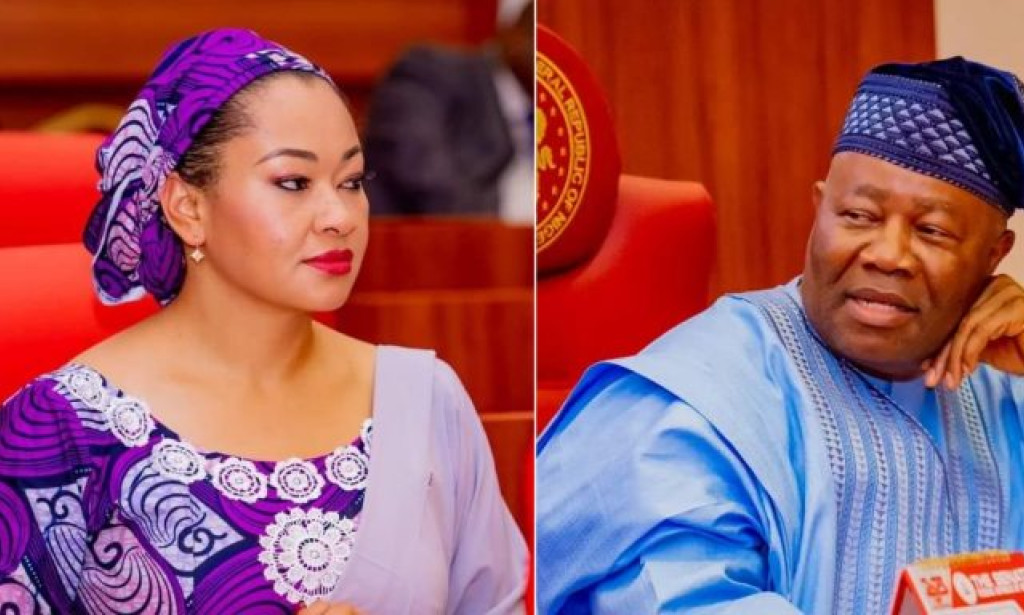The Nigerian Senate has been caught up in serious drama lately, and at the center of it all are Senate President Godswill Akpabio and Senator Natasha Akpoti-Uduaghan (Kogi Central). What started as a controversial remark has spiraled into allegations of sexual harassment, a formal petition, and a sudden suspension—all of which raise big questions about power, gender dynamics, and accountability in Nigerian politics.
The ‘Nightclub’ Comment That Started It All
It all kicked off back in July 2024 during a Senate session. Akpoti-Uduaghan spoke up without being formally recognized, and Akpabio shut her down with this now-infamous line:
“This is not a nightclub where anybody can talk anyhow.”
That comment didn’t sit well with a lot of people. Many saw it as condescending and dismissive, not just toward Akpoti-Uduaghan but toward women in politics in general. The backlash was loud, and eventually, Akpabio issued an apology, saying he never meant to insult women.
But here’s the thing—was it really just a careless comment, or did it reveal a deeper bias in how women are treated in Nigerian politics?
From Words to Accusations: Natasha Fires Back
Fast-forward to March 2025, and things took a much more serious turn. Akpoti-Uduaghan formally accused Akpabio of sexual harassment and tried to submit a petition against him in the Senate. It was rejected because Senate rules don’t allow a senator to submit a petition they personally signed.
She didn’t stop there. She had a constituent from Kogi Central, Zubairu Yaqubu, sign it instead and resubmitted it. This time, the petition went through, accusing Akpabio of sexual harassment, abuse of office, and obstructing her legislative duties.
This raised a big question: Was this a long-overdue callout of inappropriate behavior, or was it a strategic political move? No matter the motivation, such allegations deserve to be taken seriously and investigated properly.
The ‘Coincidental’ Suspension
Literally minutes after she resubmitted the petition, the Senate suspended Akpoti-Uduaghan for six months. The official reason? Violating Senate Standing Rules over a dispute about seating arrangements.
The timing was way too suspicious for many Nigerians. Was this a legitimate disciplinary action, or was it a way to shut her up before things got messier for Akpabio? Senate Leader Opeyemi Bamidele insisted the suspension had nothing to do with the harassment allegations, but let’s be honest—how many people are actually buying that?
Public Reaction: Support or Political Theater?
People are split. Women’s advocacy groups are outraged, calling it yet another example of how powerful men silence women in Nigerian politics. Meanwhile, Akpoti-Uduaghan’s critics argue that this is just political theater—a distraction from bigger national issues.
One thing is clear, though: the Senate now has no choice but to deal with this mess. The Ethics Committee is supposed to investigate the allegations, but will it actually lead to justice, or will it just be another case of sweeping things under the rug?
What Happens Next?
This situation is more than just political drama—it’s a real test for Nigeria’s democracy. If Akpabio is guilty, it’s about time powerful politicians are held accountable. But if the allegations turn out to be false, it’ll highlight the danger of political accusations being used as weapons.
Either way, this isn’t just going to disappear. The way the Senate handles this will show whether Nigeria is serious about accountability—or if it’s just business as usual.


You must be logged in to post a comment.